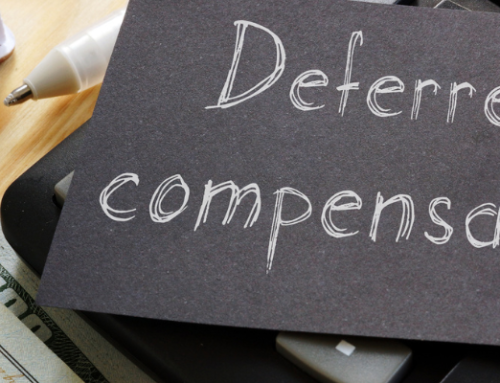There are fewer things more important to a not-for-profit’s (NFP) continued success than its financial books and records. Keeping them organized is one thing; maintaining compliance is another. Requirements for a certain level of financial statement services are dependent on any one of several factors, like income, fundraising, grants, and regulations.
Beyond any necessary compliance requirements, though, financial statement services from an independent CPA communicate to donors and funders that an organization is trustworthy and transparent: two characteristics essential to fostering ongoing relationships with stakeholders.
Types of Financial Statement Services
Financial statement services are broken down into four levels. In order from least to most involved, they are:
- Preparation
- Compilation
- Review
- Audit
There’s no hard and fast rule; however, smaller NFPs or those with basic financial needs are more likely to request a preparation while larger organizations and those with complex needs tend to require a review or audit.
Prepared financial statements are typically Generally Accepted Accounting Principles (GAAP)-compliant. The external CPA takes the internal records, and prepares and formats the financials. They’re typically only used internally.
Compiled financial statements go a couple of steps further and include an accountant’s report. There’s no assurance but compiled financials are at times acceptable by external parties requesting independently prepared GAAP financial statements.
With prepared and compiled financial statements, the CPA is not required to be independent by regulatory standards; however, if that’s the case, it should be disclosed. Also, some third-party users of the statements may require the financial statements to be prepared by an independent CPA.
Reviewed financial statements provide a limited level of assurance and can be used by lenders, grantors, and donors. An independent CPA is required.
Audited financial statements provide reasonable assurance that the financials are free of material misstatements. External stakeholders can rely on them to make an informed decision about the organization’s financial footing.
Private and Grant-Making Audit Requirements
In some cases, audited financials may be required of private foundations or grantors.
United Way, a common partner with hundreds of nationwide organizations, has its own eligibility criteria that include – little surprise here – assurance requirements. An independent financial statement review or audit is required for nonprofits with annual revenue between $100,000 and $250,000.
The audit or review for United Way must have been conducted within 18 months of the current fiscal year and be in accordance with Generally Accepted Auditing Standards (GAAS) and GAAP. Cash basis, cash modified, or modified accrual basis of accounting won’t be accepted.
Organizations partnering with United Way that have less than $100,000 in annual revenue still must certify it has proper and adequate controls in place and that accurate, timely financial information can be presented when requested.
Community foundations, private foundations, and other philanthropic individuals or businesses may request or require any level of financial statements. The key is to understand the requirements before applying for a grant. Sometimes, the term audit is used very loosely.
Audited financial statement services generally cost more than $15,000, no matter how small the organization is. So if the operating budget is less than $250,000, audits are not practical, and likewise, grantors should not be requesting smaller organizations to have an audit. The organization’s CPA can talk to the grantor with the organization and discuss what’s realistic, as well as possible alternative solutions.
State Compliance Requirements
State auditing requirements vary. Generally, if an organization is going to operate and/or solicit funds in a particular state, it needs to submit and renew a charitable registration. In 22 states, reviewed or audited financial statements must be included with the registration if the organization crosses a revenue or contribution threshold.
Virginia’s requirement for charitable registration requires, among other items, Form 990 and proof of federal tax-exempt designation. Failure to supply all necessary documentation means the state exemption certificate will be denied.
Some states consider significant contributions from a single donor enough of a requirement for audited or reviewed financials, and others base their threshold on a number of transactions.
In Virginia, the revenue thresholds are:
- $1 million in annual revenue and above: Independent financial statement audit
- At least $750,000 and less than $1 million in annual revenue: Independent financial statement review
Along with the importance of audited or reviewed financials, organizations registering in Virginia also must adhere to other requirements. For example, annual administrative costs inclusive of salaries and fundraising cannot exceed 40 percent of annual gross revenue.
In Maryland, the revenue thresholds are:
- $750,000 in gross income from charitable contributions: independent financial statement audit
- At least $300,000 and less than $750,000 in gross income from charitable contributions: independent financial statement audit or review
North Carolina’s rules are different.
Non-governmental entities that receive $500,000 or more in state funds must submit a Yellow Book or single audit, which includes a Schedule of Federal and State Awards. This is due within nine months of the organization’s year-end.
Even smaller organizations could be required to have audited financial statements in North Carolina. Any NFP that receives $1,000 or more in state or local grants could be investigated and required to produce an independent financial statement audit.
Even new organizations applying for a charitable registration for the first time will probably need to meet the prescribed requirements.
Virginia’s Neighborhood Assistance Program (NAP) is another common state program that requires partnering organizations to submit a recent financial statement audit, review, or compilation. Note that NAP requires these to be independent; while GAAP itself doesn’t require an independent compilation, individual agency requirements can supersede it.
For the VA NAP, audits or reviews are mandatory for organizations with more than $100,000 in annual donations or revenue. A compilation is needed for organizations under the $100,000 threshold.
Making Sense of Not-for-Profit Compliance Requirements
Keeping track of all the different requirements for nonprofit financial compliance is a challenging and often overlooked task for many nonprofit executives and Boards. It’s more than a check-the-box exercise; financial statement services involve closer inspection of the organization’s bookkeeping, recordkeeping, the system of internal controls, and in the case of audits, risk assurance. There’s always the option to perform a financial statement audit every year to be safe, but again, it could be cost-prohibitive.
The Not-for-Profit team at PBMares is here to help. Whether organizations are looking at calendar-year-end planning or strategic plans, now is a good time to ensure the entity’s financials are organized. Contact Team Leader Bo Garner, CPA, MBA for further discussion.





